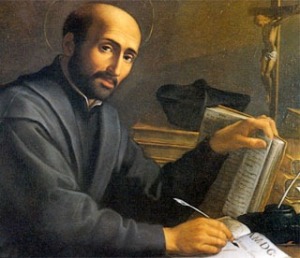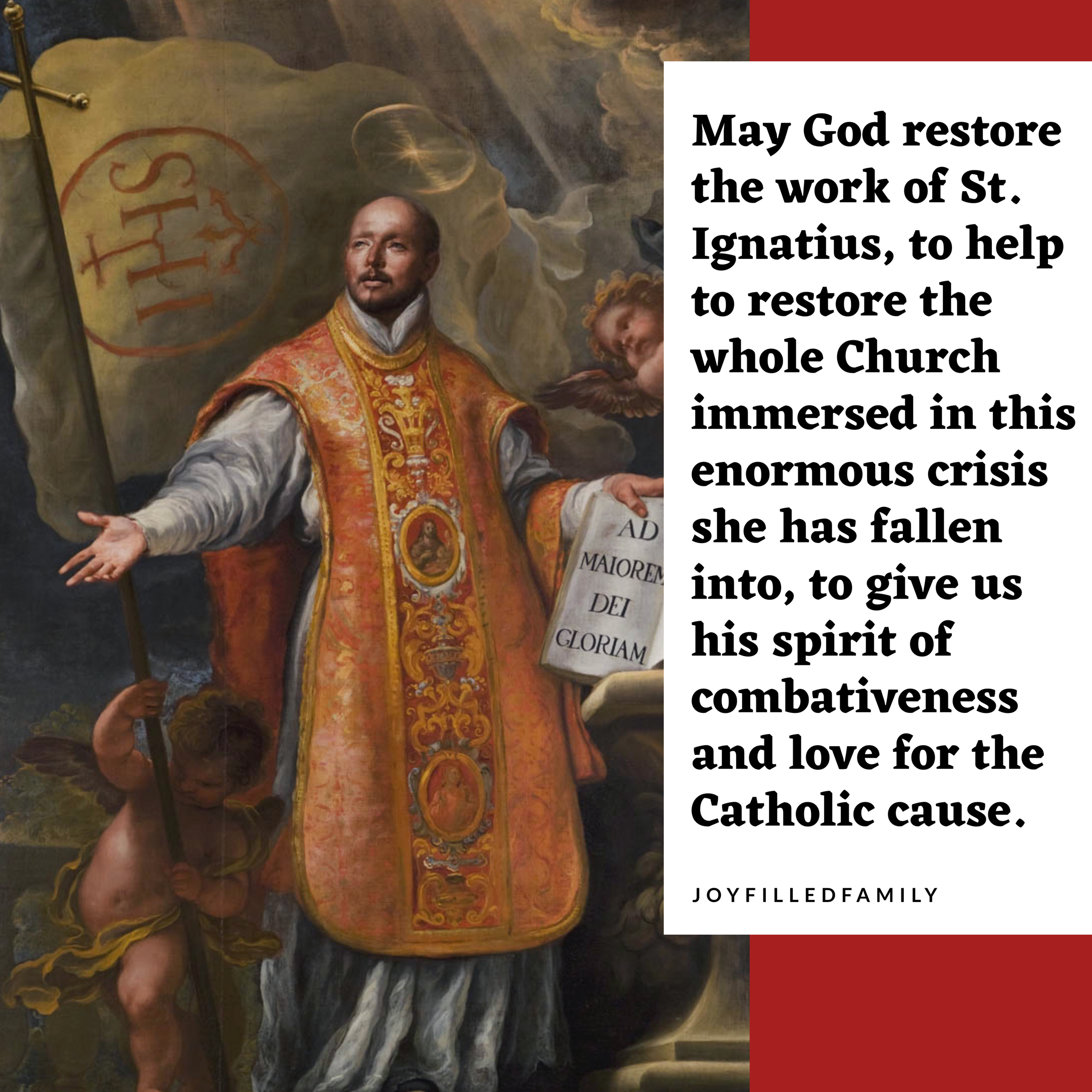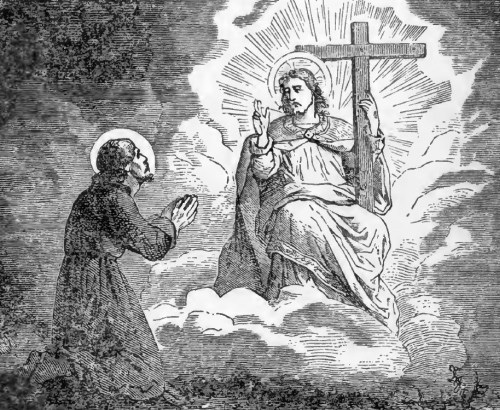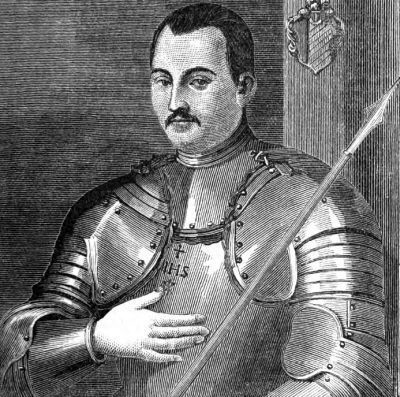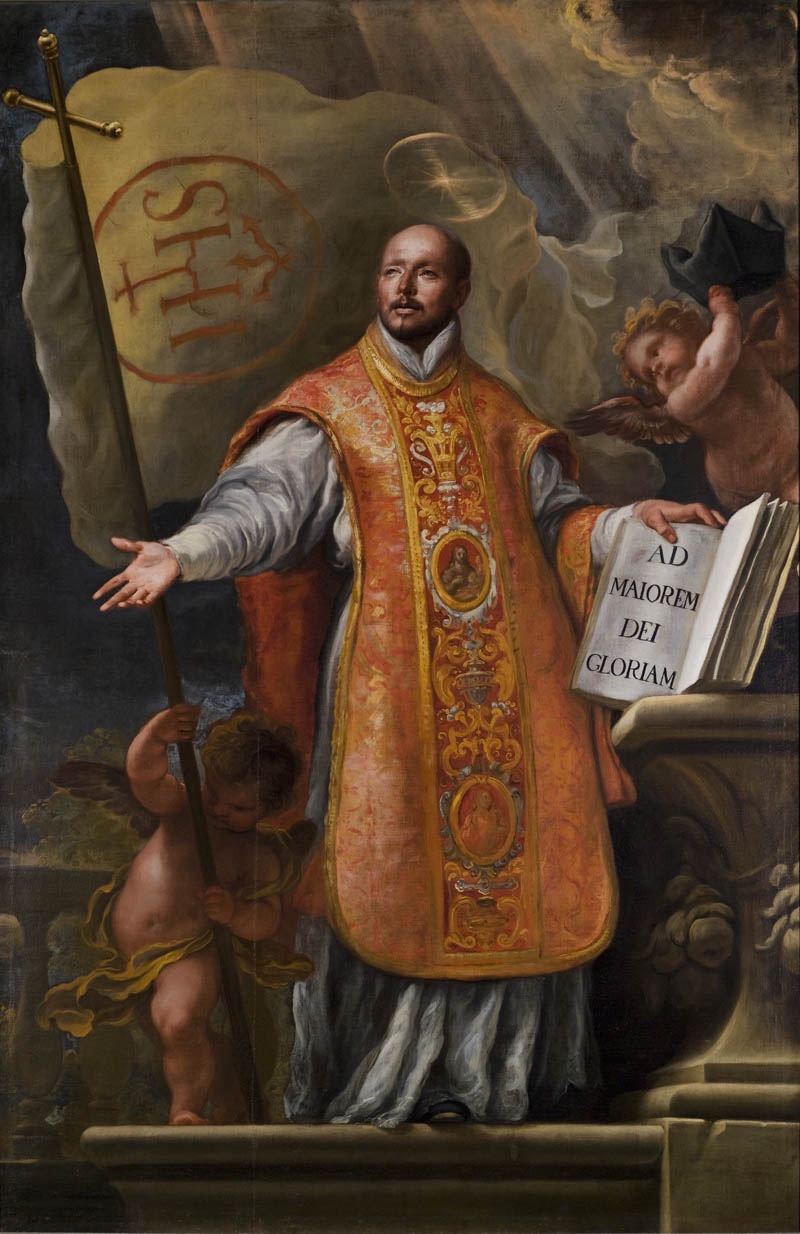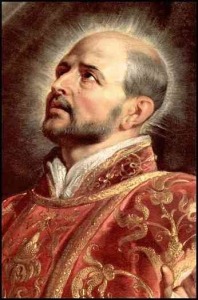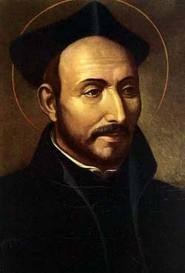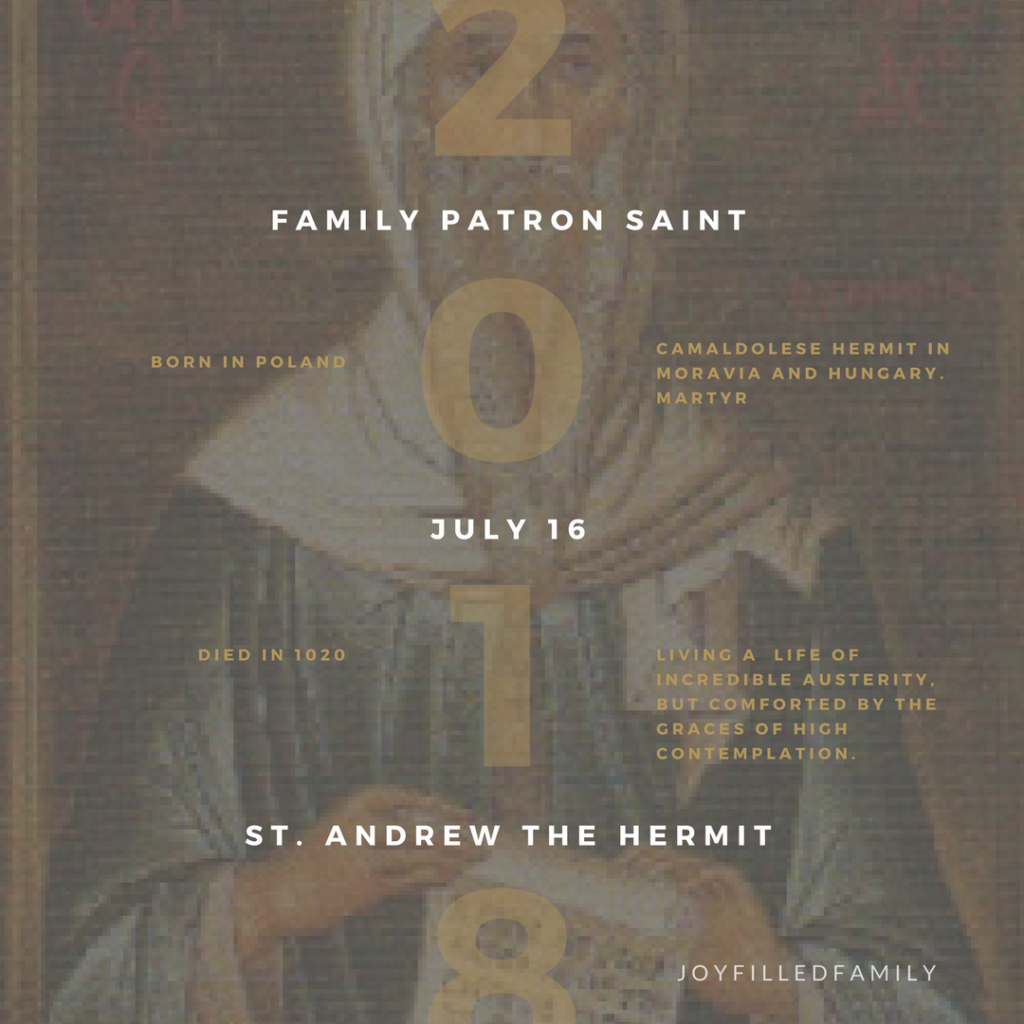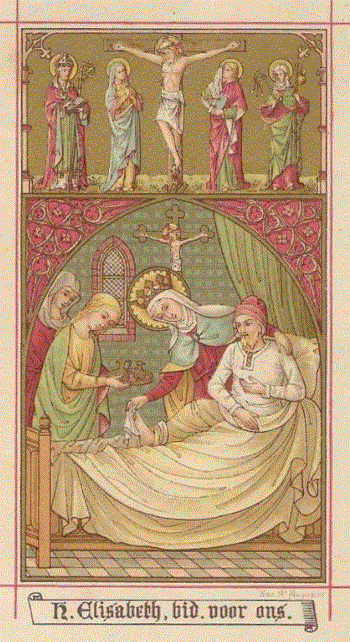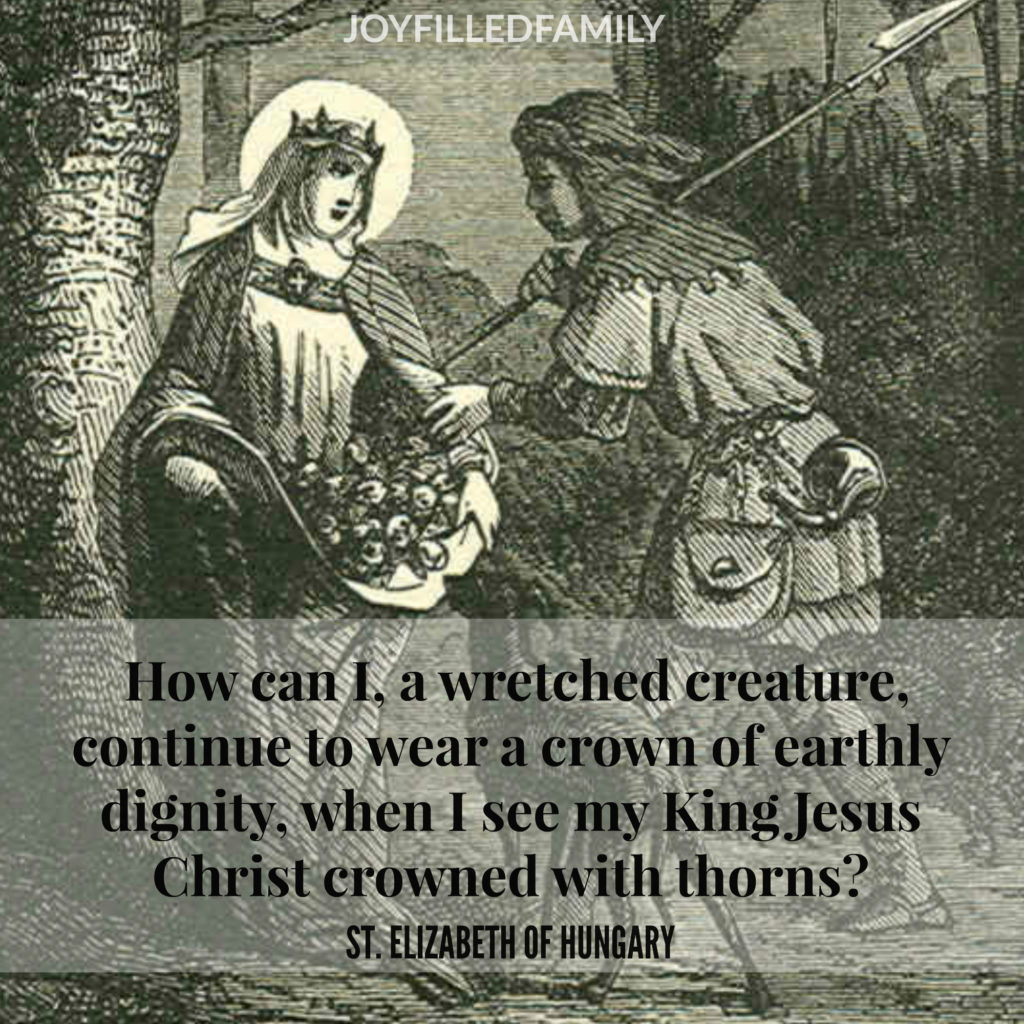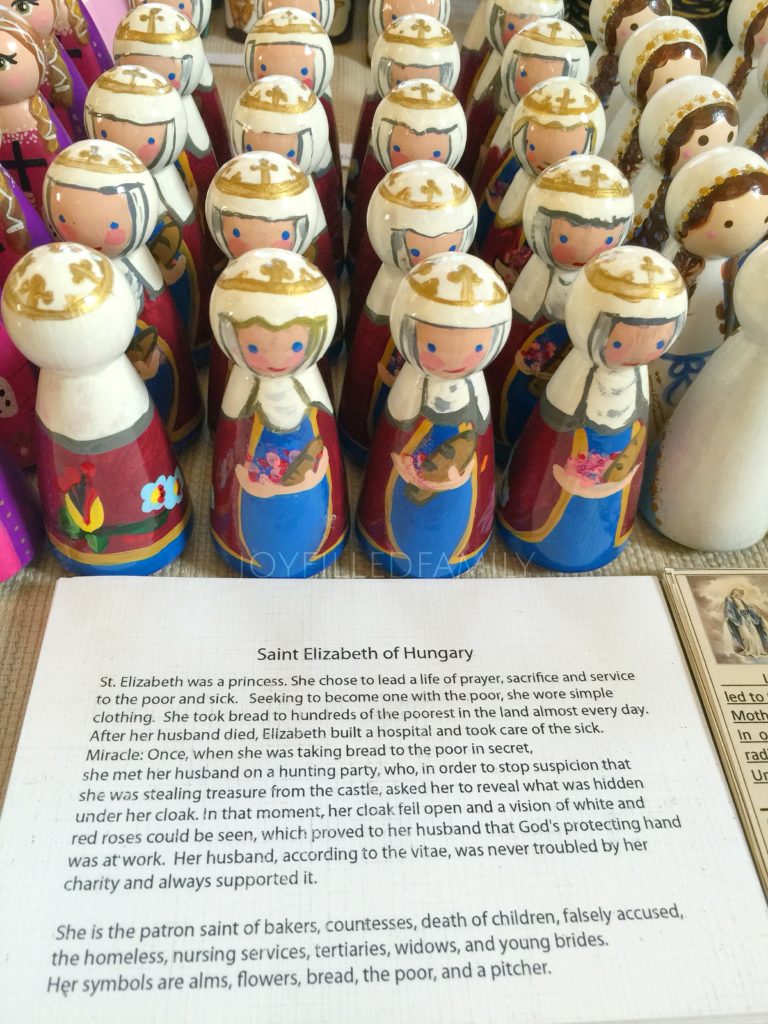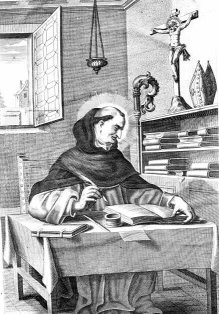“There is no road leading to Heaven but that of innocence or repentance. He who has departed from the first, must take the second; else he is eternally lost.” -St. Cajetan
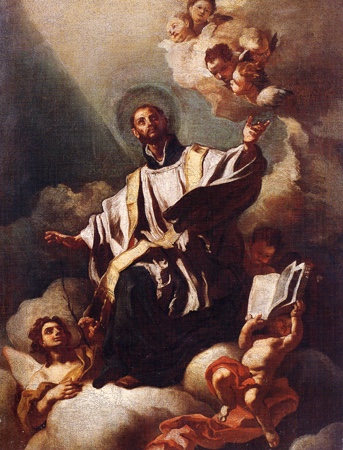
Today, August 7 is the feast day of St. Cajetan, the patron and namesake of our fourth son. We named our son after this beloved saint as our devotion to him grew in my early pregnancy. God had allowed us to be stripped after making a major life move with great discernment. St. Cajetan is the is patron for jobseekers and the unemployed.
St. Cajetan of Thiene brought poverty to its unimaginable limits.
St. Cajetan, ora pro nobis
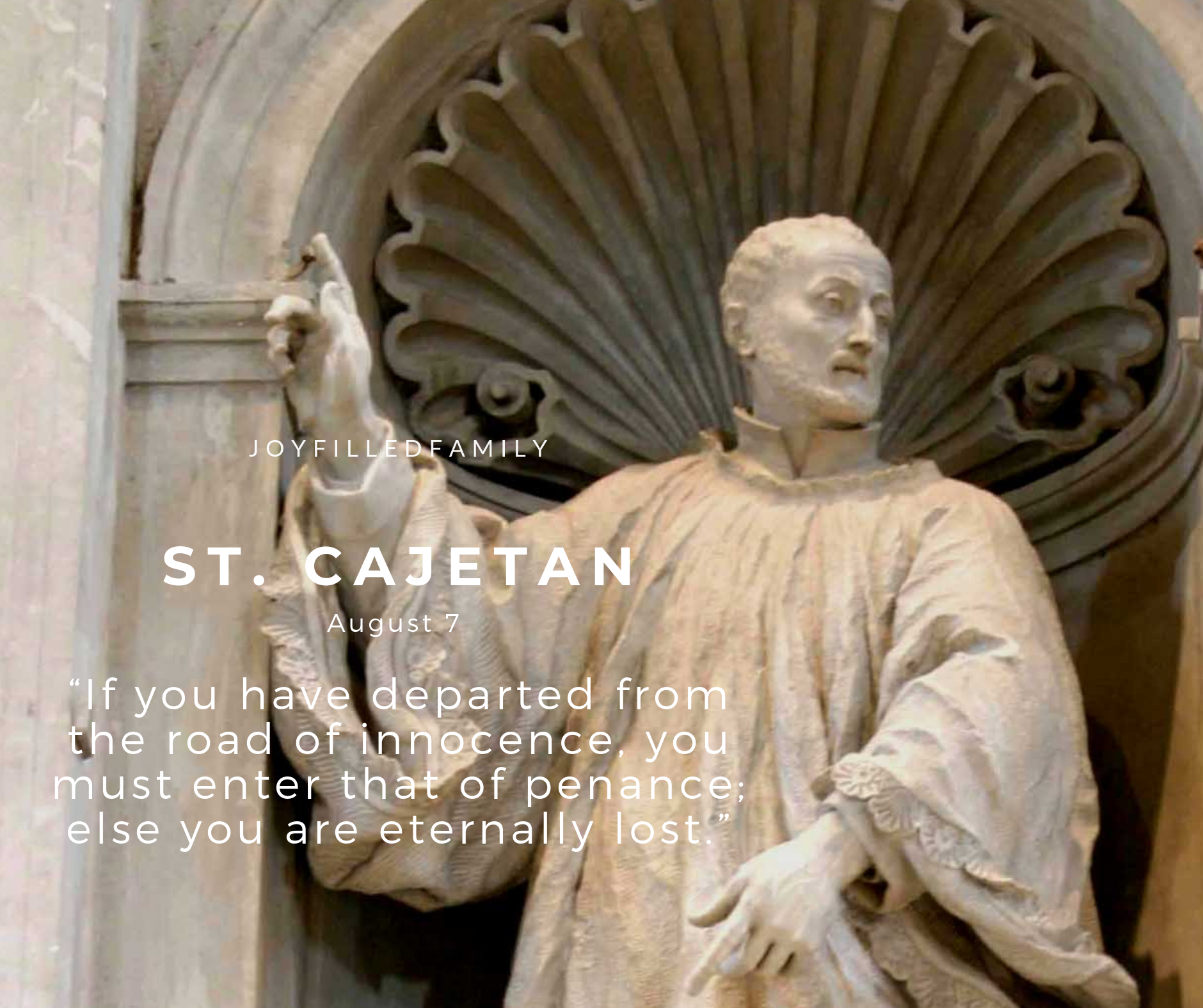
Saint Donatus
SAINT CAJETAN
Confessor
SAINT DONATUS
Bishop and Martyr
DOUBLE / WHITE
The son of noble and wealthy parents, Cajetan (1480-1547) practiced law for some time, but later spent his considerable fortune in building hospitals in which he himself nursed the plague-stricken. After his ordination to the priesthood, he founded the first community of Regular Clerks, known as Theatines. They imitated the manner of life of the early Christians, trusting entirely in God for their daily bread. Cajetan’s tireless zeal for the salvation of his fellow men caused him to be called the “hunter of souls.”
INTROIT Ps. 36:30-31
The mouth of the just shall meditate wisdom, and his tongue shall speak judgment: the law of God is in his heart.
Be not emulous of evildoers: nor envy them that work iniquity.
Glory be . . .
Mass of a CONFESSOR OF THE FAITH, except
COLLECT
O God, you blessed the holy confessor Cajetan with the grace to lead the life of an apostle. may the prayers and intercession of this saint help us to trust in you always and desire only the things of heaven. Through our Lord . . .
Commemoration of SAINT DONATUS
Donatus, bishop of Arezzo in Tuscany, was arrested and beheaded during the rule of Julian the Apostate about the year 362.
O God, You are the glory of all Your priests. May we sensibly feel the help of Your martyr bishop Donatus whose feast we celebrate today. through our Lord . . .
Lesson
Lesson from the book of Ecclesiasticus
Ecclus 31:8-11
Happy the man found without fault, who turns not aside after gain, nor puts his trust in money nor in treasures! Who is he, that we may praise him? For he has done wonders in his life. He has been tested by gold and come off safe, and this remains his glory forever; he could have sinned but did not, could have done evil but would not, so that his possessions are secure in the Lord, and the assembly of the Saints shall recount his alms.
R. Thanks be to God.
Gradual
Ps 91:12, 14.
The just man shall flourish like the palm tree, like a cedar of Lebanon shall he grow in the house of the Lord.
Ps 91:3
V. To proclaim Your kindness at dawn and Your faithfulness throughout the night. Alleluia, alleluia.
James
1:12
V. Blessed is the man who endures temptation; for when he has been tried, he will receive the crown of life. Alleluia.
GOSPEL Matt. 6:24-33
At that time, Jesus said to His disciples: “No man can serve two masters. For either he will hate the one, and love the other: or he will sustain the one, and despise the other. You cannot serve God and mammon. Therefore I say to you, be not solicitous for your life, what you shall eat, nor for your body, what you shall put on. Is not the life more than the meat: and the body more than the raiment? Behold the birds of the air, for they neither sow, nor do they reap, nor gather into barns: and your heavenly Father feedeth them. Are not you of much more value than they? And which of you by taking thought, can add to his stature one cubit? And for raiment why are you solicitous? Consider the lilies of the field, how they grow: they labour not, neither do they spin. But I say to you, that not even Solomon in all his glory was arrayed as one of these. And if the grass of the field, which is to day, and to morrow is cast into the oven, God doth so clothe: how much more you, O ye of little faith? Be not solicitous therefore, saying: What shall we eat: or what shall we drink, or wherewith shall we be clothed? For after all these things do the heathens seek. For your Father knoweth that you have need of all these things. Seek ye therefore first the kingdom of God, and his justice, and all these things shall be added unto you.”
SECRET
Accept this offering which we humbly present in honor of Your saints, O God, and through it purify our bodies and our souls. Through our Lord . . .
Commemoration of SAINT DONATUS
We dedicate these offerings to Your holy name, O Lord, in honor of Your blessed martyr bishop Donatus; may they increase the fruits of our piety and devotion through the intercession of this saint. Through our Lord . . .
POSTCOMMUNION
Almighty God, we pray that the reception of this Bread of Heaven may strengthen us against all adversity through the intercession of Your blessed confessor Cajetan. Through our Lord . . .
Commemoration of SAINT DONATUS
O Almighty and merciful God, You have made us both partakers and ministers of Your Sacraments. May the intercession of Your martyr bishop Donatus help us profit from the fact that we share his faith and his apostolate. Through our Lord .
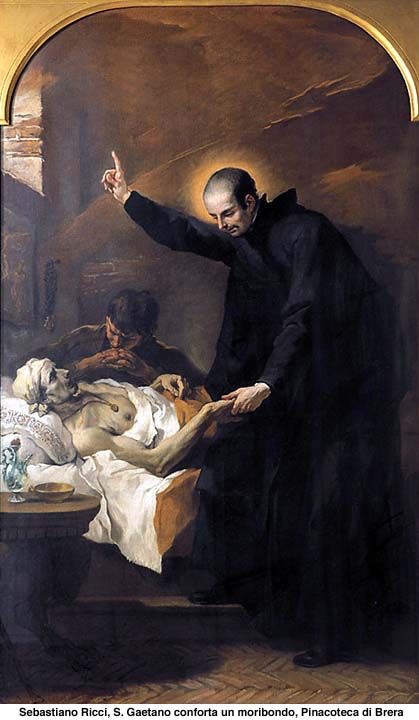
Saint Cajetan of Thiene (also known as Saint Gaetano), was born October, 1487 at Vicenza in Venetian territory and he died at Naples in 1547. Under the care of a pious mother he passed a studious and exemplary youth, and took his degree as doctor utriusque juris at Padua in his twenty-fourth year.
by Father Francis Xavier Weninger, 1876
Saint Cajetan, founder of the holy order, whose members are called Theatines, was born in 1487, at Vicenza, in Lombardy, of noble and pious parents. Immediately after his baptism, his mother consecrated him to the Blessed Virgin, humbly begging her to guard him and take his spiritual welfare under her motherly protection. His entire after life proved how effectual his mother’s prayers had been. He was never, even in his most tender years, like other children; his greatest pleasure consisted in praying, building small altars, giving alms to the poor, and being most perfect in his obedience to his parents. His whole conduct was such, that even in childhood, he was called a saint He afterwards went to the University, and always made it his greatest care to preserve his innocence unspotted among so many temptations. Having received, at Padua, the degree of civil and canon laws, he repaired to Rome, where he was ordained priest, and preferred by Pope Julius II to a high ecclesiastical position. After the death of the Pope, he resigned his dignity and returned to his home, desiring to work more effectually for the salvation of souls. He served the sick in and out of the hospitals, with untiring charity, in the time of pestilence. His labors were at first, confined to his native town; later, however, he went to Venice. His principal aim was to save souls. The sick, he persuaded by kind and gentle exhortations; and others he moved to virtue by his earnest sermons. The popular saying was, that Cajetan looked like a seraph when standing before the altar, and like an Apostle when in the pulpit. His devotion when he said mass, was equalled by his fervor and zeal while preaching. Whenever he had the opportunity, he tried to win a soul for the Almighty. After some time, he went again to Rome, where, inspired by God, and with the co-operation of three other pious and learned men, he founded an Order for such priests as desired to live an apostolic life, to reform the negligence of the clergy, and the corrupt morals of the people of the world; to observe carefully the sacred ceremonies of the church; restore the observance of pious conduct in the temples dedicated to the worship of the Most High; to labor in opposition to the heretics; assist the sick and dying, and in a word, to promote the welfare of men to the best of their ability. He imposed a special obligation on the members in regard to the vow of poverty; they were not only forbidden to have annual revenues, but even to ask alms. They had to leave the whole care of their subsistence to God, and wait patiently for what Providence would send them. Hard as this seemed to be, still many were found willing to bear such abject poverty. The first house of the order was at Rome; but it was abandoned after the first year, on account of an inroad of imperial soldiers, who also treated Cajetan with great cruelty. Among these soldiers there was ‘One who had formerly been acquainted with the Saint at Vicenza, and knew that, at that time, he was very rich. Believing that he still possessed great treasures* he tried to force them from him, by maltreating him most brutally, and several times casting him into prison. From Rome, the holy founder went to Venice, where he again nursed those stricken down with pestilence. He was then ordered by the Pope to Naples, to found a new house for his Order. This city had to thank the vigilance of this Saint, under God, for its preservation from heresy; for, several disciples of Luther, who at that time disseminated his poisonous doctrines in Germany, had come to Naples and begun privately, as well as publicly, to maintain, under the name of “Evangelical liberty,’* the teachings of Luther. They had also brought with them several books which contained the Lutheran doctrines, designing to give them to the people, and thus contaminate the city with the doctrines they contained. When Saint Cajetan was informed of this, and had, moreover, seen the Evil One standing in the pulpit beside Bernardin Ochino, one of Luther’s disciples, whispering into his ear every word that he preached, he notified the ecclesiastical authorities of these facts, and preached so zealously against the new heresy, that the heretical books were all given up and burnt, and the inhabitants of the city were preserved in the true faith. The Saint rendered the same service to several other cities in Italy.
The holy man was exceedingly severe towards himself. He never divested himself of his rough hair-shirt. Almost daily he scourged himself most mercilessly. In partaking of nourishment he was so temperate, that his life might justly be called a continual fast. He spent most of his nights in devout exercises, taking but a short rest upon straw. He never spoke except to honor God or benefit man. He was indefatigable in his exertions for the salvation of souls, and hence it is not surprising that God bestowed many graces upon him. One Christmas Eve, when he was passing the night in the Church of Saint Mary Major, the Holy Child appeared to him, and the Blessed Virgin, who carried Him, laid Him. into the Saint’s arms, filling his soul with heavenly consolation. The holy man had many other visions during his life, and was often seen in a state of ecstacy during his prayers. He also possessed the gift of prophecy, and miraculously cured a great many sick. There was a priest of his Order, whose foot was to be amputated. The evening before the operation was to be performed, the Saint examined the foot, which was extremely swollen and affected with gangrene; he kissed it, made the holy sign of the cross over it, bandaged it anew, exhorting the sufferer to put his trust in God and to ask the intercession of Saint Francis. After this he turned to God m prayer. When on the following day, the surgeon came to perform the painful and dangerous amputation, they found, to their amazement, that the foot was healed.
When Saint Cajetan sailed from Venice to Naples, a terrible storm arose, and all on board expected the boat to sink every moment. Cajetan took his Agnus Dei and threw it into the sea, which immediately became calm. His life is filled with similar events; we, however, having no space for more of them, will only relate how happily and with what heroic charity he ended his earthly career.
The authorities at Naples, civil as well as ecclesiastical, had resolved to institute the Inquisition in the city, to guard the faithful more thoroughly against heresy. The people were, however, opposed to it to such an extent, that a revolt was feared, and neither the exhortations and persuasions of Saint Cajetan nor of other men were of any avail. The holy man was deeply distressed at the danger of so great a city and still more of so many souls. Hence he offered his life as a sacrifice to appease the wrath of the Almighty, praying that God would accept of it, restore peace, and spare the city and its inhabitants. The following event will show how pleased the Almighty was with this sacrifice. Soon after the Saint had offered himself to Heaven, he became dangerously sick, and repeating his offer, died a most peaceful and holy death, having had the privilege of seeing Christ and the Blessed Virgin. The Saviour assured him of his salvation, the Divine Mother of her protection until his death. And yet he would not die in any other manner than as a penitent; for when the physician said he needed a more comfortable bed, he protested most emphatically against it, saying that he would not, in his last hour, allow his body any comfort, but that he would be laid in his penitential robes upon ashes on the ground, adding: “There is no road leading to Heaven but that of innocence or repentance. He who has departed from the first, must take the second; else he is eternally lost.” He received the last Sacraments with great devotion, turned his eyes towards Heaven, and rendered up his soul tranquilly to God, in the year of our Lord 1547. The strife in the city soon after ceased and peace was restored, as if God had wished to show that He had accepted the life of Saint Cajetan as a peace offering for the salvation of innumerable souls. Many miracles were wrought by the Almighty to recompense the great faith which Saint Cajetan manifested in the Divine Providence, when he instituted such complete poverty in his new order. After his death also, God honored him by working many miracles through his intercession.
Practical Considerations
I particularly desire that the last maxim which Saint Cajetan gave on his death-bed should sink deeply into your heart. “There is no road to Heaven but that of Innocence or Penance.” This is a truth which is founded upon Holy Writ. If then it is your earnest wish to go to Heaven, examine yourself carefully, and see if you are walking in the right path. How is it with your innocence? How with your penance? I leave it to you to answer these questions, and will only say, in the words of Saint Cajetan: “If you have departed from the road of innocence, you must enter that of penance; else you are eternally lost.” Having said this much to you, I will give you a few instructions on the life of this great servant of God.
• Saint Cajetan placed a special trust in God in regard to the necessaries of life. Many persons are too much concerned about their temporal matters; others, too little; the latter lead an idle life, take no care of their homes, do not work according to their station in life, or squander their earnings or inheritance. But by far the greater number are too greedy of wealth. Their thoughts, from early morning till late at night, are occupied with their temporal affairs. They do not even take time to say a morning prayer or to assist at Holy Mass, because they fear to miss some hing by it, or think they neglect their household duties. They give not one thought to God or to their soul during the whole day. In short, they are as much absorbed in their temporal affairs, as if riches were the sole aim and object of their existence. They expect everything from their own exertions, not remembering that all success depends on the Almighty. May you not belong to either of these classes. Work for your livelihood according to your position; avoid idleness; but above all, trust in God, who will assuredly not forsake you, if you do your duty. “Behold the birds of the air; for, they neither sow nor do they reap, nor gather into barns; and your heavenly Father feeds them. Are you not of much more value than they? And for raiment why are you solicitous? Consider the lilies of the field how they grow; they labor not, neither do they spin. And if the grass of the field, which is today, and to-morrow is cast into the oven, God does so clothe; how much more you, O ye of little faith? Seek therefore first the kingdom of God and his justice, and all things shall be added unto you.” (Matthew 6:2) Saint Cajetan never suffered from want. God frequently assisted him by miracle. With many men it is quite different. They are often in want, and God does not assist them. For some, it is their own fault; for others, it is a trial. The latter must console themselves with the thought that this want serves them to obtain salvation. God wishes to lead them, like Lazarus, through poverty, into Heaven. Had Lazarus possessed worldly goods like the rich man, perhaps he would have had to suffer in hell like him. Therefore, they must not grieve over their poverty, but bear it with resignation. They must endeavor to lead a Christian life and put entire trust in God, and He will surely not forsake them. But those who have come to poverty, because they have been idle, or worked on Sundays or holidays without necessity, or sought for gain by unlawful means, should not be surprised, if they suffer want; for, how can they reasonably expect to be blessed by the Almighty, if they so often, without shame or fear, transgress His commandments? Do they not know that God’s curse threatens him who transgresses His laws?
“Cursed shalt you be in the city, cursed in the field. Cursed shall be thy barn and cursed thy stores. Cursed shall be the fruit of thy womb and the fruit of thy ground, the herds of thy oxen and the flocks of thy sheep,” etc. But the Almighty also promises His blessing to those who keep His commandments “Blessed shalt thou be in the city and in the fields; blessed shall be the fruit of thy womb and of thy ground, and the fruits of thy oxen and the droves of thy herds. Blessed thy barns,” etc. (Deuteronomy 27) If men desire that God should help them in their poverty, they must resolve to keep His commandments better, to work according to their station, and take sufficient care of their affairs. “Be- hold, says He, this day I have set before you life and death, blessing and cursing. Choose therefore life.”
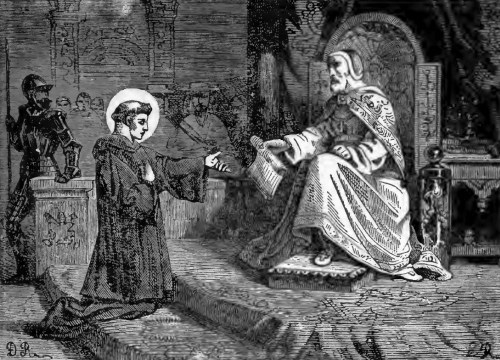
Pictorial Lives of the Saints
SAINT CAJETAN
Cajetan was born at Vicenza, in 1480, of pious and noble parents, who dedicated him to our Blessed Lady. From childhood he was known as the Saint, and in later years as “the hunter of souls.” A distinguished student, he left his native town to seek obscurity in Rome, but was there forced to accept office at the court of Julius II. On the death of that Pontiff, he returned to Vicenza, and disgusted his relatives by joining the Confraternity of Saint Jerome, whose members were drawn from the lowest classes; while he spent his fortune in building hospitals, and devoted himself to nursing the plague-stricken. To renew the lives of the clergy, he instituted the first community of Regular Clerks, known as Theatines. They devoted themselves to preaching, the administration of the Sacraments, and the careful performance of the Church’s rites and ceremonies. Saint Cajetan was the first to introduce the Forty Hours’ Adoration of the Blessed Sacrament, as an antidote to the heresy of Calvin. He had a most tender love for our Blessed Lady, and his piety was rewarded; for one Christmas eve she placed the Infant Jesus in his arms. When the Germans, under the Constable Bourbon, sacked Rome, Saint Cajetan was barbarously scourged, to extort from him riches which he had long before securely stored in heaven. When Saint Cajetan was on his death-bed, resigned to the will of God, eager for pain to satisfy his love, and for death to attain to life, he beheld the Mother of God, radiant with splendor and surrounded by ministering seraphim. In profound veneration, he said, “Lady, bless me!” Mary replied, “Cajetan, receive the blessing of my Son, and know that I am here as a reward for the sincerity of your love, and to lead you to Paradise.” She then exhorted him to patience in fighting an evil who troubled him, and gave orders to the choirs of angels to escort his soul in triumph to heaven. Then, turning her countenance full of majesty and sweetness upon him, she said, “Cajetan, my Son calls thee. Let us go in peace.” Worn out with toil and sickness, he went to his reward in 1547.
Reflection – Imitate Saint Cajetan’s devotion to our Blessed Lady, by invoking her aid before every work.
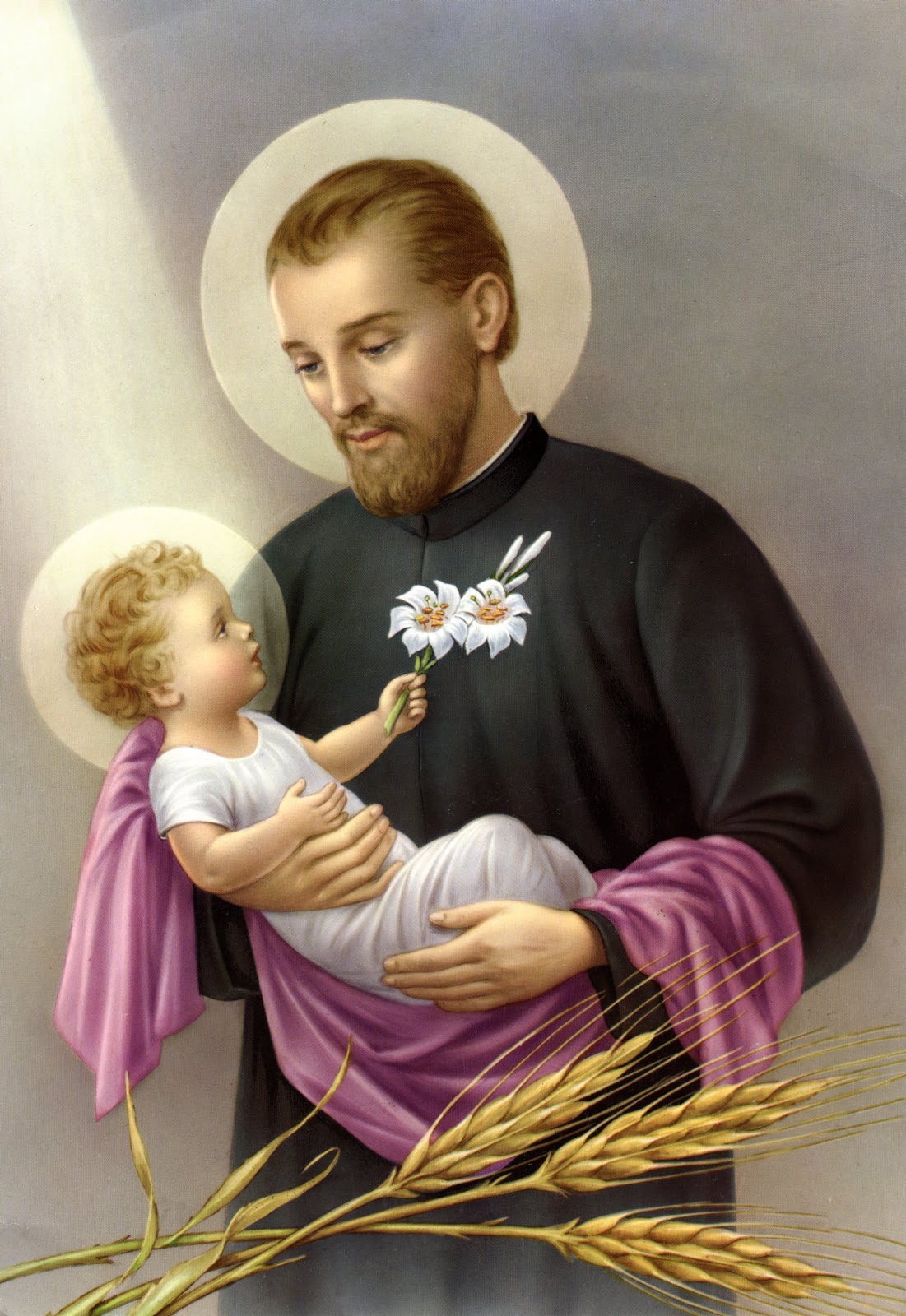
RESOURCES:
